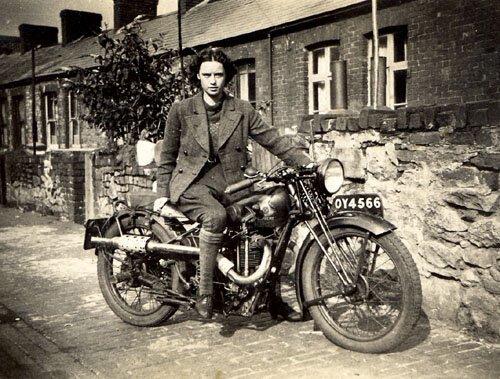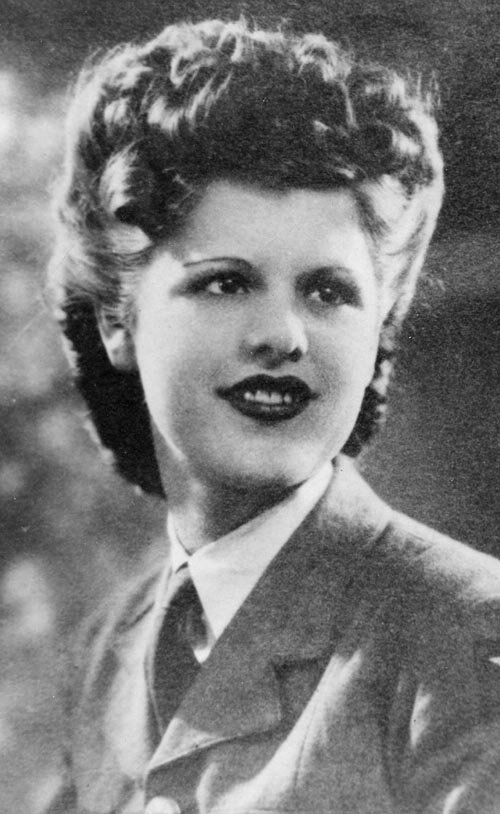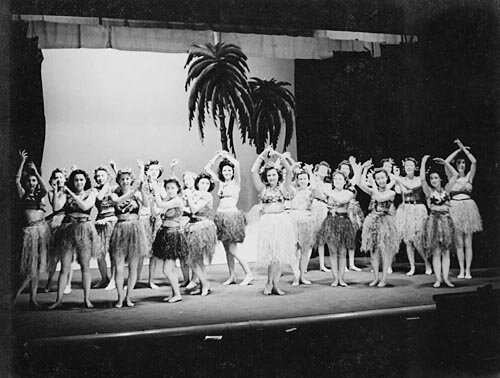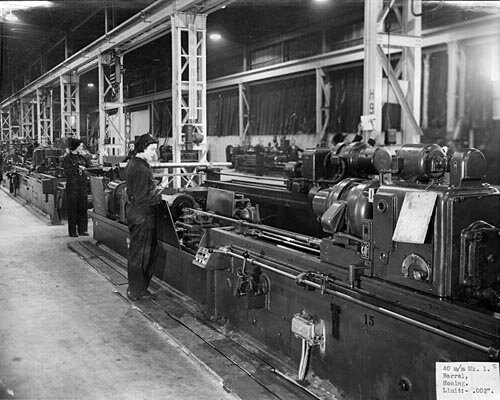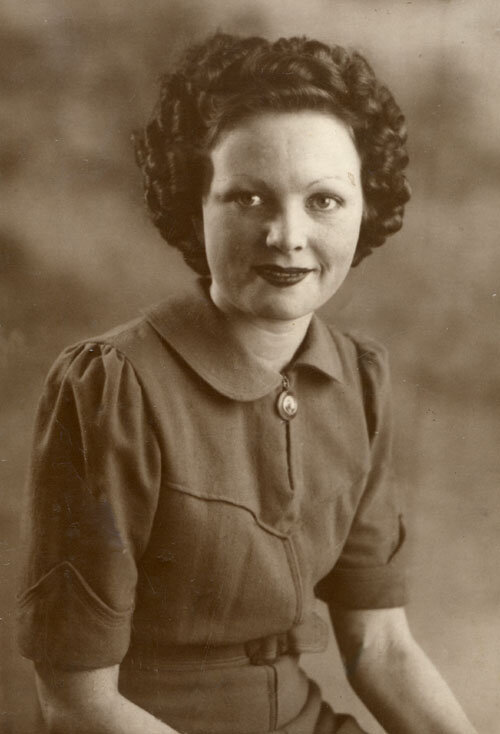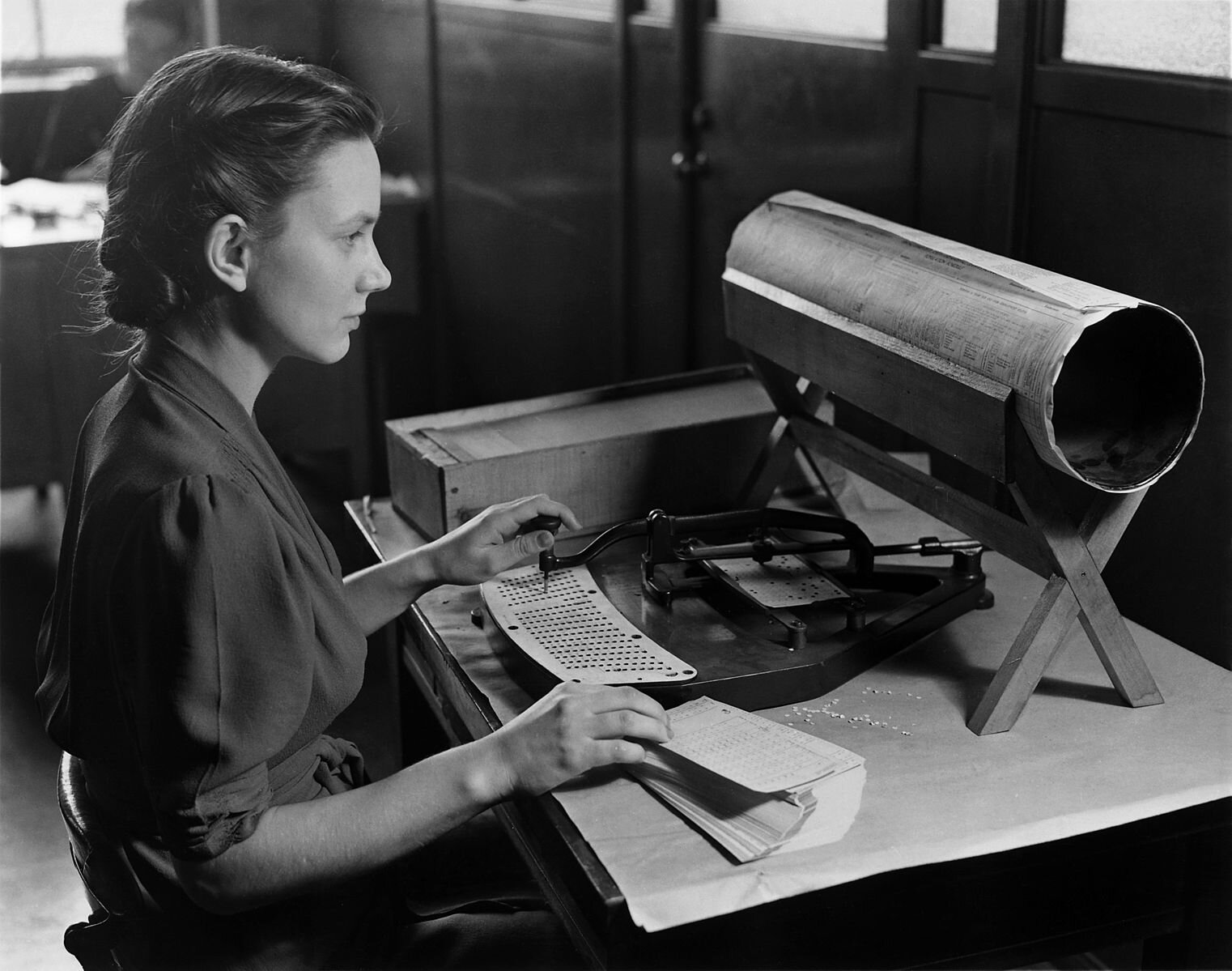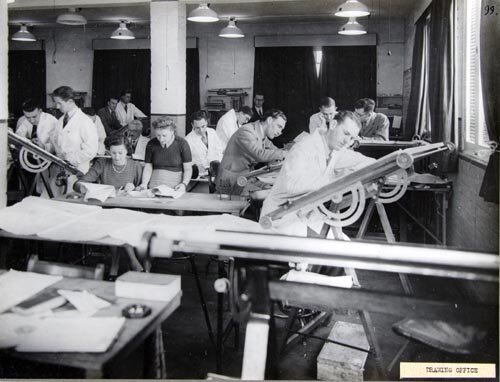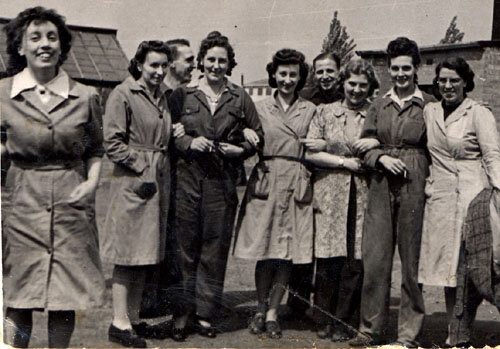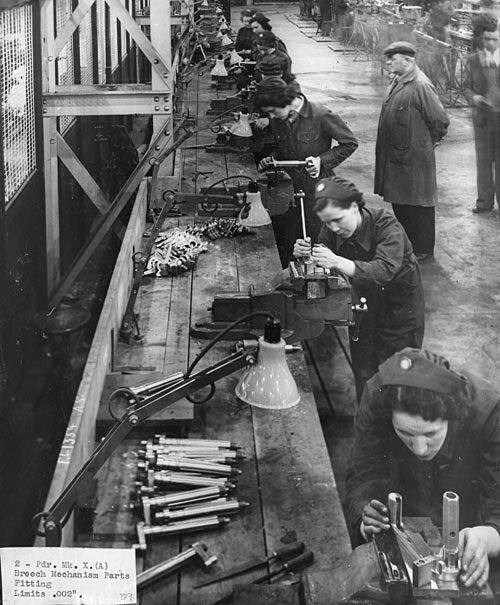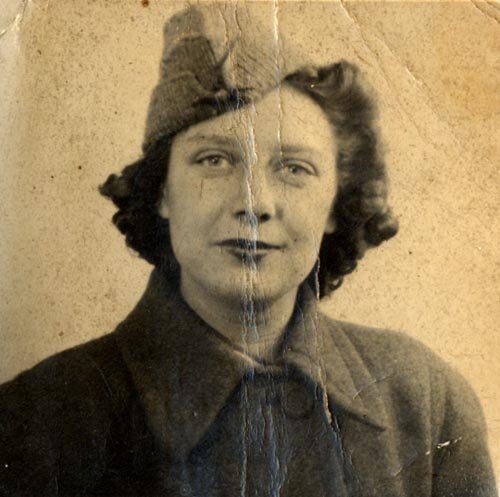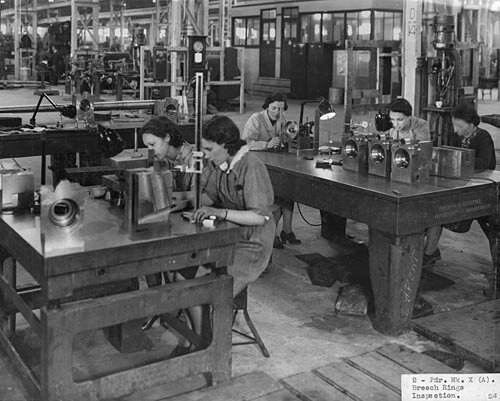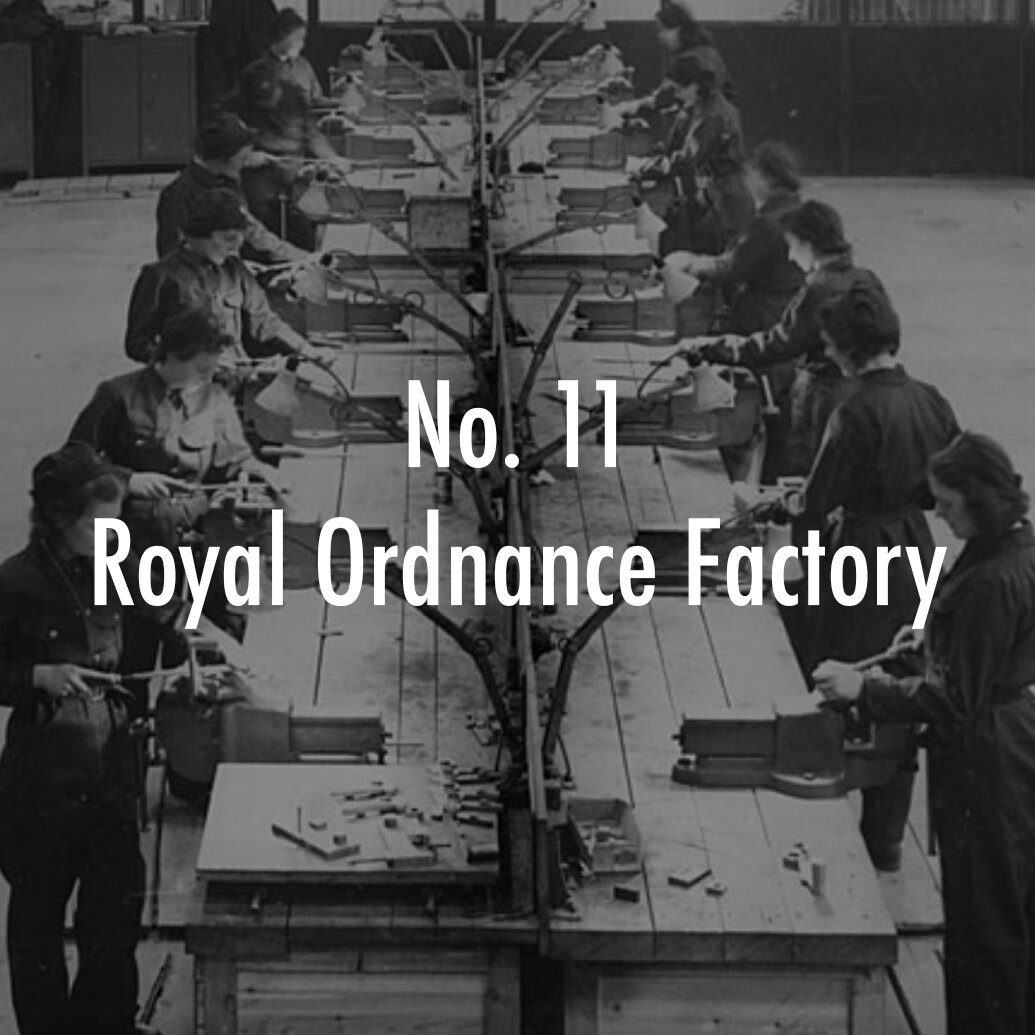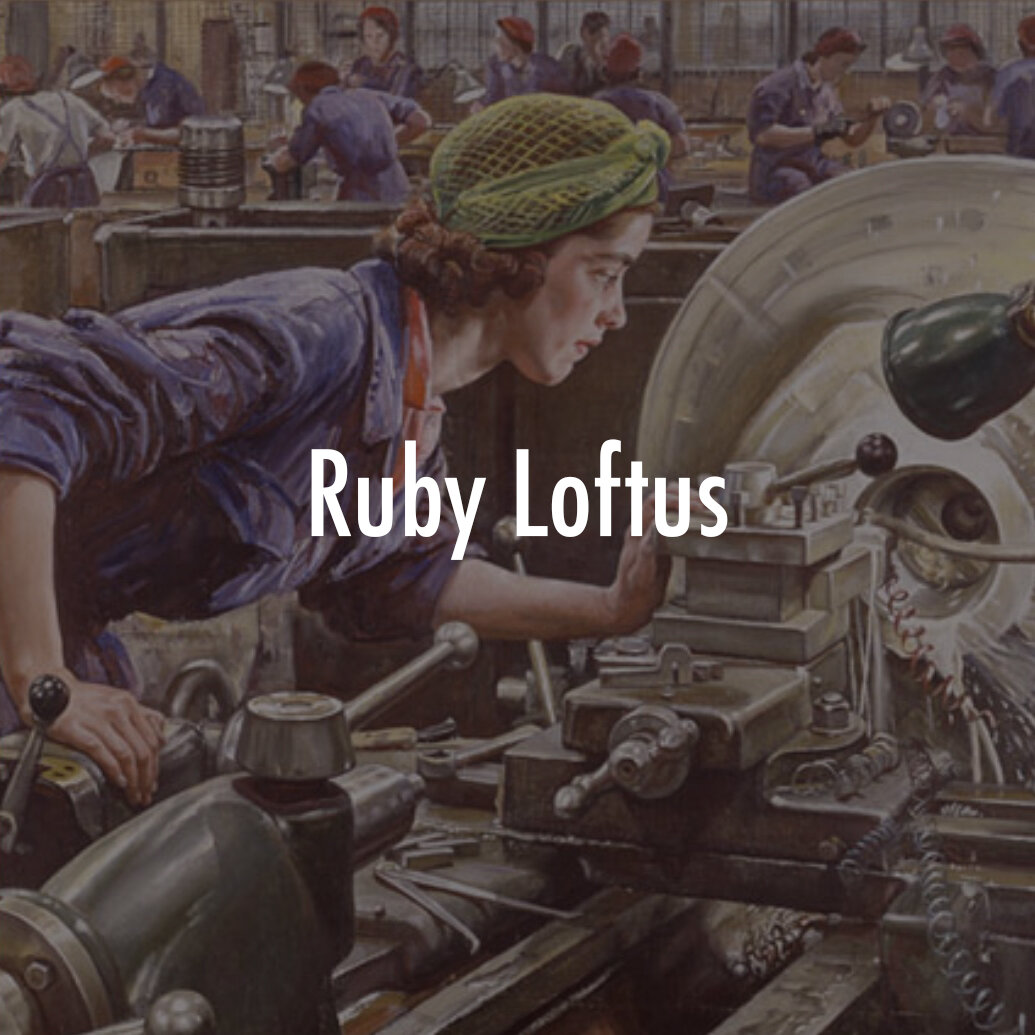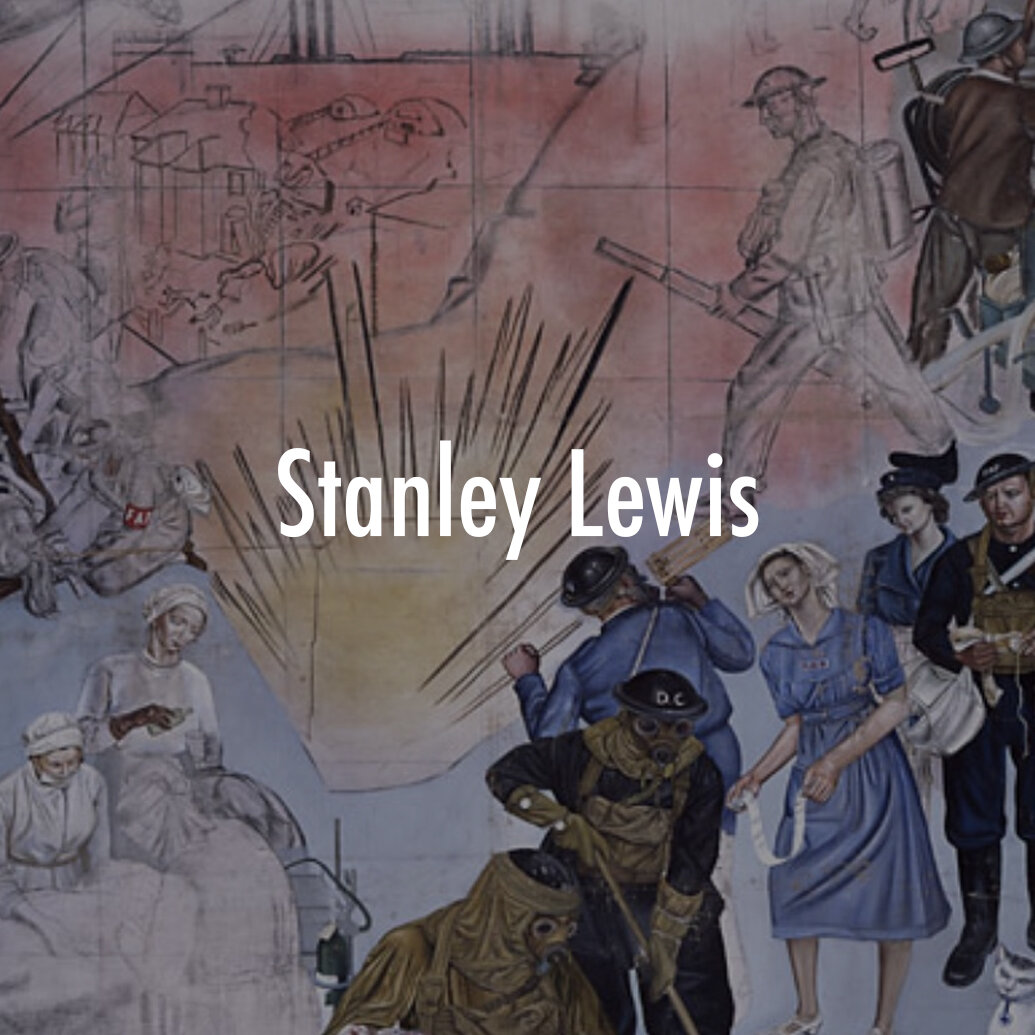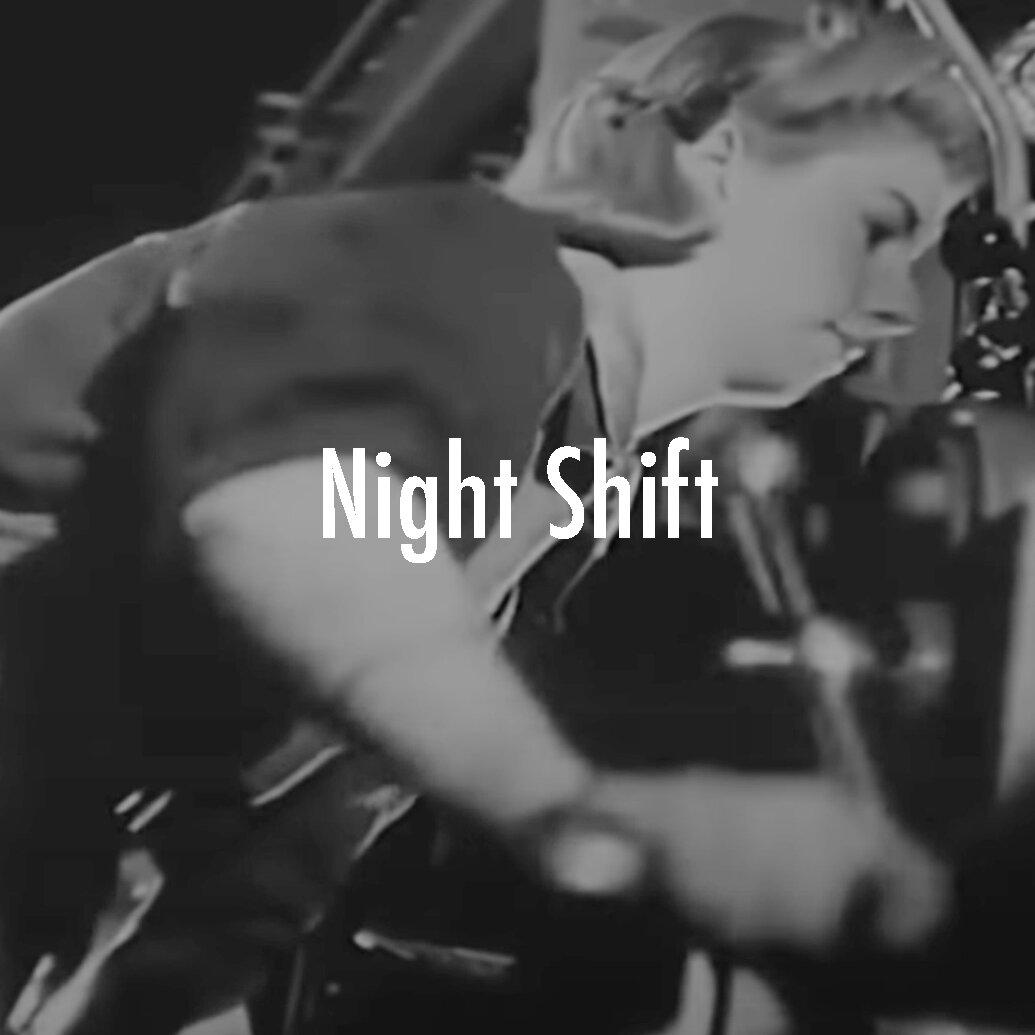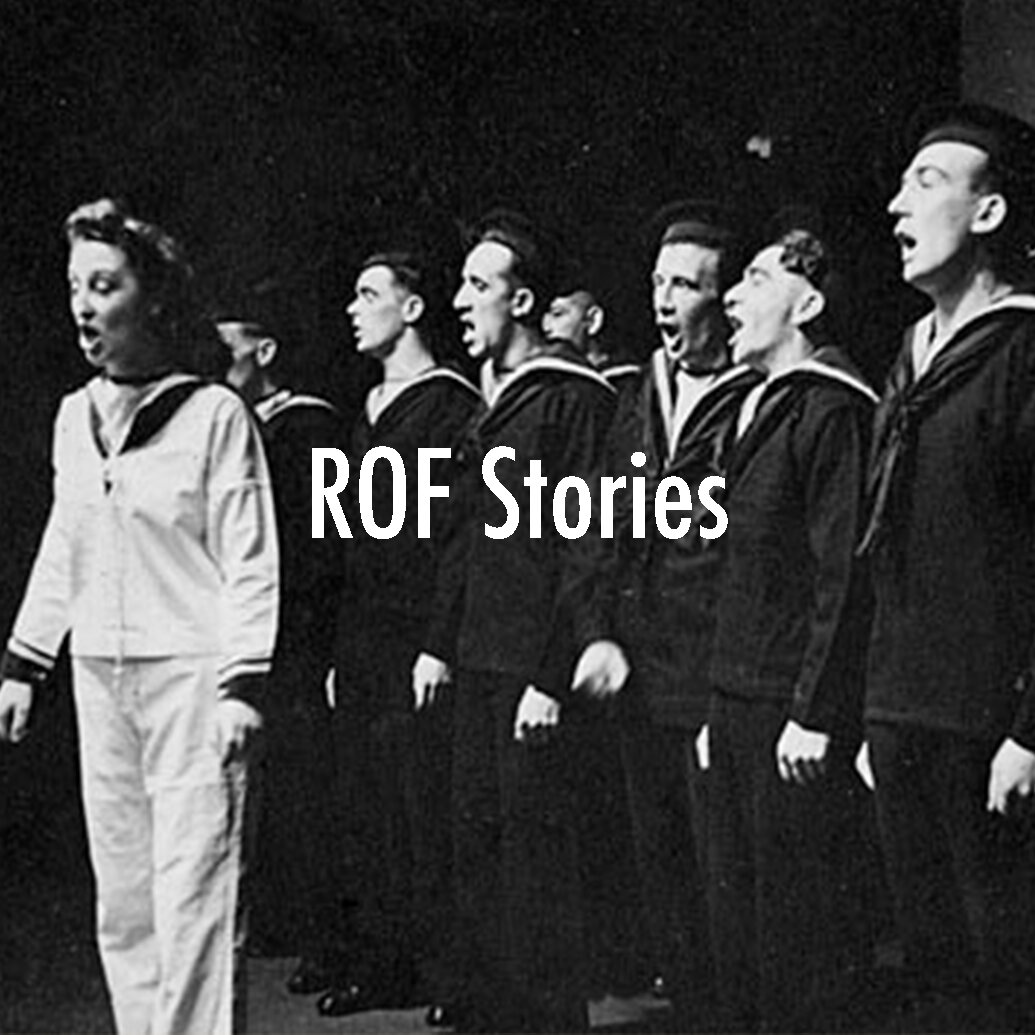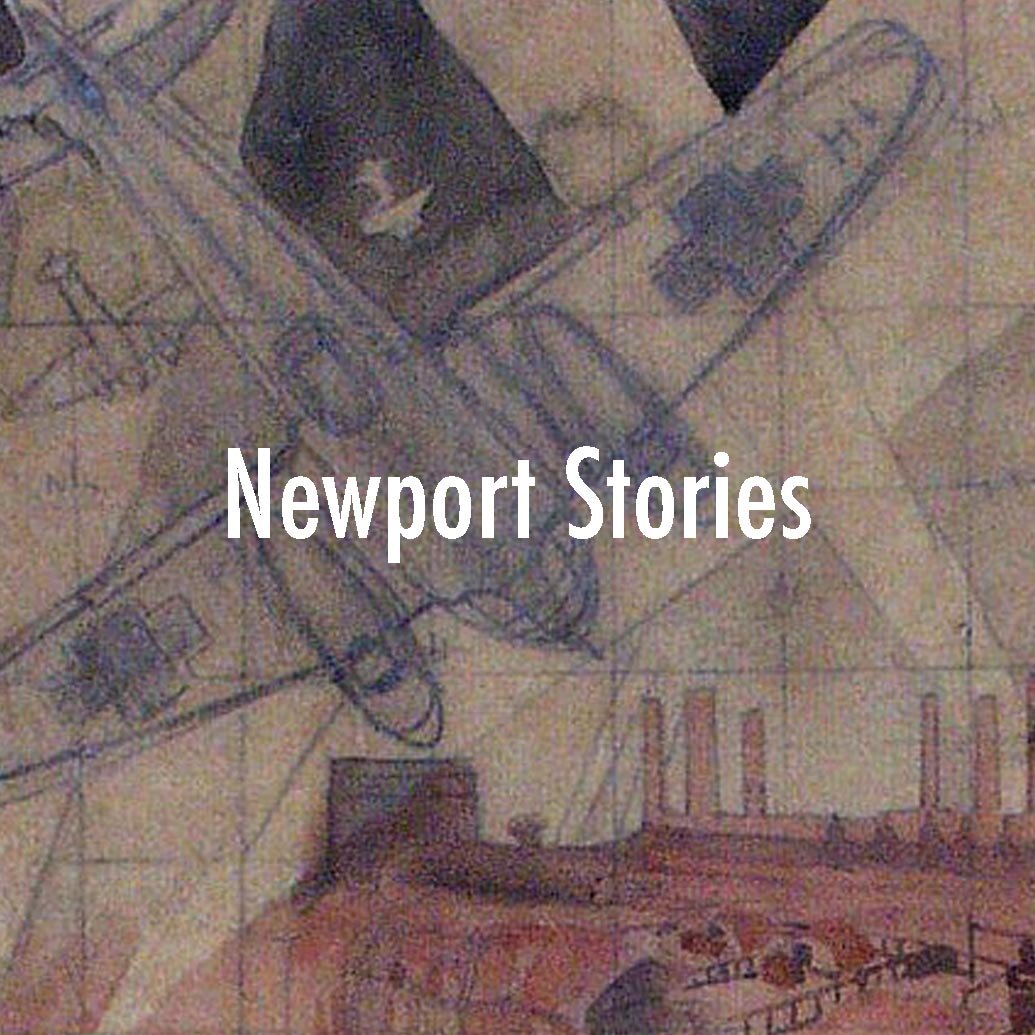ROF Stories:
Help from Abroad
Eira Davies served an apprenticeship in a shop on Stow Hill. When she was 14½ she went to work in the millinery department EG Taylor’s, a busy Newport department store. At 20, she was working at London House, another big Newport store, until she volunteered war work in 1940.
This is her story.
"In the 1930s Newport was a busy place for shopping with lots of department stores. The Market was full of stalls and there were crowds of people everywhere.
“The Froggies have packed it in!”
At London House they wouldn’t let us keep our own names; they thought there were too many shop assistants called Davies, Evans or Jones. They called me “Miss Dawson” and another girl was called “Miss Dennis”. At the time of the evacuation of the British troops at Dunkirk in 1940, I was dressing one of the shop windows. Another assistant came and told me the news - “The Froggies have packed it in!”
I decided to apply for war work, even before my age group was called up. A neighbour, Mr Fontaine, was already working at ROF Newport as a fitter. I asked him if it was heavy work. “No, Eira,” he said. “It’s light engineering.” I suppose in his eyes it was light work!
The buyer at London House wasn’t happy to let me go. It was spring 1940 and hat shops were always busy at Easter time, so I agreed to stay on until April or May.
Back to “school”
After I started at the Factory, I was sent to “school” – the training section on the Factory site. We wore boiler suits and shoes with steel toe caps and I had a green snood to keep my hair safely in place. Then we were put on the filing benches. I wasn’t very good at first and I remember the instructor shouted at me. Some of those skilled men must have been driven crazy trying to teach us young bits of girls. We also learnt how to use a micrometer. Luckily, my brother showed me how.
Then I worked on the milling machines making firing pins. Once, a young fellow from the office was talking to me. When he had gone the setter, Norman, said to me “Don’t talk to him again, he’s slowing you down; he’s the rate setter – he works out the pay for piece work!”
I hated it all at first – I didn’t like it one little bit. But I made such good friends there.
Help from abroad
Early on in the war Mrs Vanstone, the Welfare Officer, asked me if I would like to be in a film. I had to come in the evening and help unload the big wooden crates of machinery which were part of the Lease-Lend agreement from the USA. In the straw among the machine parts were tins of dried eggs and milk. I had to hold one up and say, “Oh look! Whitehouse brand – that’s American isn’t it?”
Afterwards I came home in a jeep with Margaret Travers who lived in Park Crescent. My father wasn’t at all pleased. Our street was an unadopted road – it had never been tarmacked and it was quite rocky. “Helluva road!” the American driver said! I put my name down for a bicycle so that I could cycle to work. My neighbour, Mr Fontaine said, “Wait for me and we’ll go together.” There was also a bus we could get as well. We used to get a workman’s return ticket for 4½d.
Rice and prunes?
On nights I used to start at 8.00pm. A tea trolley would come round after a couple of hours and again at 4.00am. Then we’d have a meal break at 1.00am. They used to put up the menu on a blackboard. You could get a lovely meal in the canteen for nine pence. For afters, we used to say that if we got rice and prunes one day, then it would be prunes and rice the next day!
Sometimes my mother would pack up two slices of bread for me. I knew Florrie Ford who used to look after the toilets. She had a little room with a fire and we used to toast the bread over it.
“Throw me a laugh!”
Once I was working on a machine with a girl called Cathy who came from Blackwood. We were waiting for work so we sat down on the duckboards by the machine. We thought we’d play a game and I said, “I’ll throw you a laugh and throw me a laugh.” As luck would have it, Mr Galbraith came round. “If that’s all you have to do, you can come with me and I’ll find you some work!”
“We’d have fun alive!”
Once there was a dance for ROF workers at the City Hall in Cardiff. There was a train to take us there. I couldn’t get a new outfit so I wore a long dress I’d had before the war as a bridesmaid.
Shooting round corners
Eventually I went on to barrel inspection on the two-pounder guns. We checked the barrels with gauges and then the Royal Artillery tested them. If a barrel wasn’t right they said “this gun would shoot round corners”. Each inspector had a metal punch to stamp the checked guns with an individual number. Then the slingers took the guns to the loading bay
I remember Jessie Giblin who was one of the slingers. Once I was talking to her as we had a cup of tea from the trolley; it turned out that my mother, whose name was Hopkins before she married, was Jessie’s second cousin.
Hard times, good friends
Jessie was a real character. As a slinger she used to dance up the bay with the gun barrels. At mealtimes she’d be up on the canteen stage. If you were feeling a bit down, she‘d smile at you and say, “What’s wrong with you now? One day, you’ll look back and think this was the best time of your life!”
Dad died in 1943. I asked Mr Galbraith, the Factory Superintendent, if I could be made redundant. I told him I would carry on doing war work as a bus conductress. In those days the buses finished at 11.00pm and that would allow me to be at home to look after my mother during the nights. It took me a little while and quite a few arguments. Mr Galbraith didn’t want to let me go. He said, “Do you know how much it has cost to train you?”
They found a place for me in the Chief Inspectorate of Armaments (CIA) because they didn’t work at night.
I got married in October 1945. My husband-to-be was out in North Africa and then Italy. He had a month’s leave and we got a special marriage licence. My sister who was a dressmaker by trade made my dress. She knew someone who worked in Reynolds, one of the big shops at the bottom of Charles Street, and was able to get the fabric. I borrowed a veil and headdress from Jessie Giblin’s daughter, Joan. Jessie brought me a blue garter and a pair of white gloves. After the wedding my husband still had to serve another year abroad.
After the war they asked me if I wanted to stay on at the Factory but I said no. I’d had enough. I went back to work as a milliner in EG Taylor’s which had been taken over by McHoward’s. I stayed there until the June before my son was born in September 1947."
- Eira (Helene) Marjorie Elton (née Davies)
November 2005
